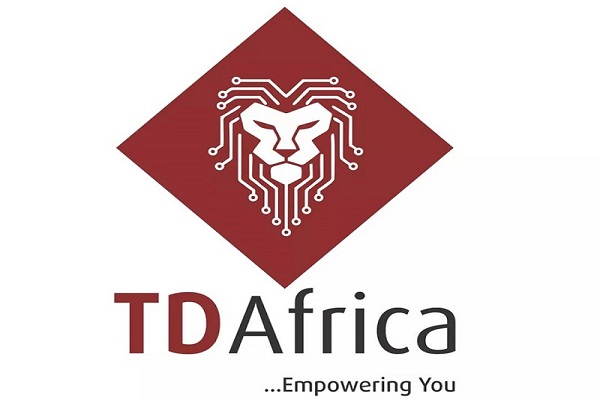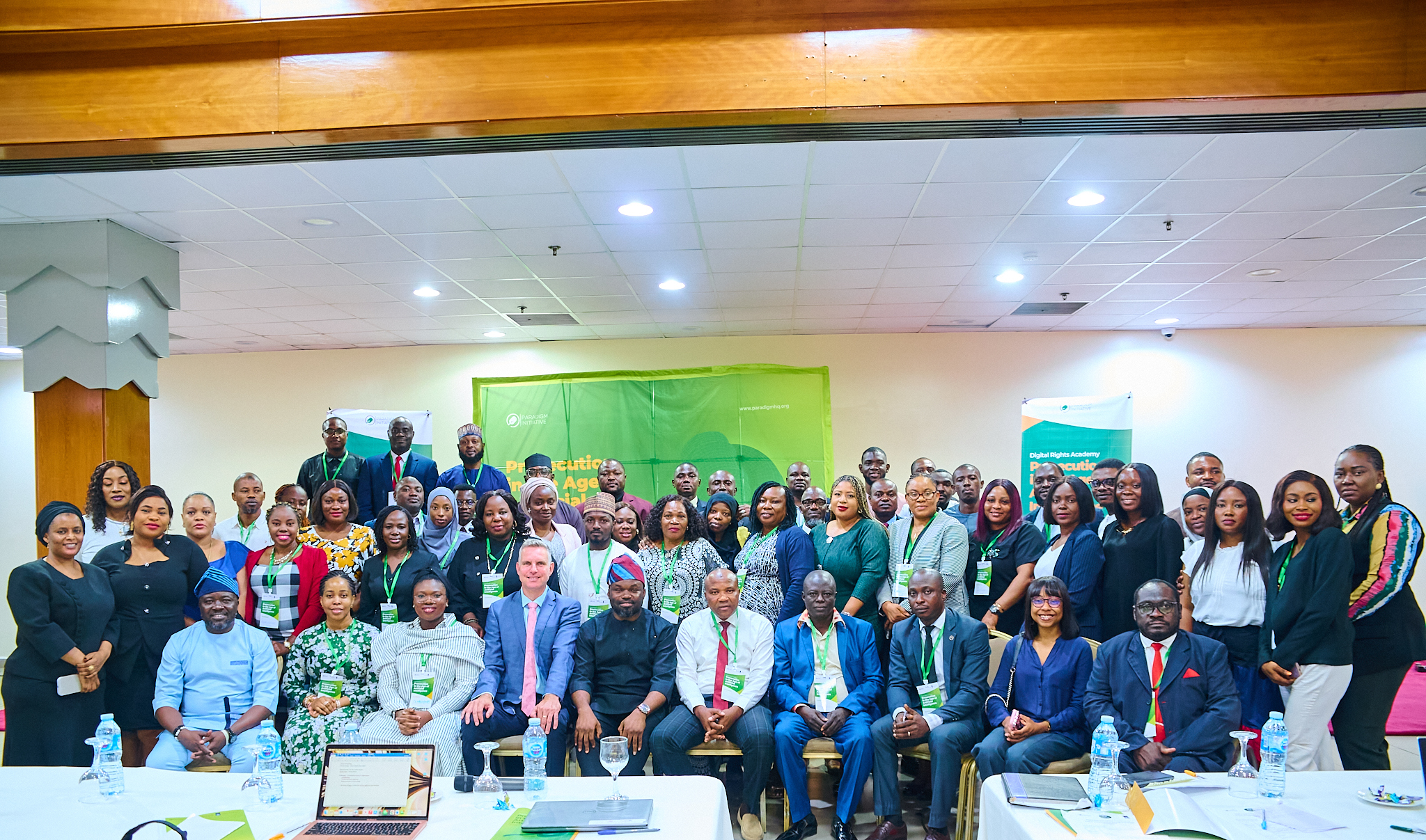Telecom
Rugged Computers are More than Just ‘Hard Shells’

First of all, let us distinguish between a “rugged” computer and a “ruggedized” computer (or tablet or smartphone).
A rugged computer is designed to operate reliably in very harsh environments and conditions. The term “ruggedized” gives the sense that fragile internal components have been somehow protected. Truly rugged devices are not simply wrapped in a tough shell.
Tough and durable mobile computers and smartphones are gaining in popularity – because the customers demand more durable products! – and there are actually some mainstream devices that could be described as ruggedized (and are often advertised as rugged). But they are not truly rugged.
They might be waterproof but lack other aspects of ruggedness, like the ability to withstand vibrations/shocks and function well in extreme temperatures.
Let us briefly recap the definition of ruggedness:
The devices should have passed some of the MIL-STD tests, i. e. the American military standard for equipment.
24 laboratory test methods ensure that the equipment can handle low pressure at high altitudes; exposure to high and low temperatures plus temperature shocks; rain; humidity; sand and dust exposure; leakage; shock and vibration.
• They must be highly rated on the ingress protection (IP) scale for protection against dust and liquids. The ratings are displayed as a 2 digit number.
The first digit reflects the level of protection against dust and the second digit reflects the level of protection against liquids (water). So an IP65 rating, for example, would ensure complete protection against dust and protection against water jets.
Now let us take a closer look on the tests carried out on rugged computers:
Drop and shock testing. This is one of the most important tests for rugged computers, simply because rugged computers are dropped all the time by workers in the logistics, forestry, public transportation, construction, mining, security and other industries where rugged computers are in high demand.
Drop a normal computer and you will easily break the display or the hard drive. Drop a rugged computer and nothing will happen – at least it is highly unlikely that the device will break if it has passed all the relevant tests.
All rugged mobile computers are tested to ensure they can survive falls as well as high-force impacts to the devices’ casings. Drop tests are certified by independent test laboratories and performed in accordance with MIL-STD-810G.
There are eight different procedures to choose from that each use different ways to cause shock or impact.
The “transit drop test” is the most cited. It requires items to survive a total of 26 drops from the height of 122 cm, on each face, edge and corner, onto a hard surface like concrete.
Liquid resistance testing. Mobile field computers are inevitably exposed to rain, spills and splashes. The second number of the IP code describes the liquid ingress protection, i.e. how well the unit is protected against water.
The scale ranges from dripping water to continuous immersion in water. Water resistance tests are often carried out by the manufacturers of rugged computers by exposing the computer to powerful water jets from many directions without harmful effects.
The test duration, water volume and water pressure varies depending on the rating. The water temperature is lower than the device.
Vibration testing. Ordinary mobile computers are sensitive to vibrations and are not built to handle vibrations. Hard drives disks are especially vulnerable when subjected to vibration. Rugged computers, however, must be able to handle vibrations since they are often used in vehicles that travel on bumpy and rough surfaces.
Vibration tests are performed in accordance with MIL-STD-810G. They are designed to determine if a device can withstand the vibrations it would be exposed to during its lifecycle.
The tests use laboratory shakers set to different levels to simulate being on a vehicle or carried by a person, with variations in the vibrations’ wave form, frequency and intensity depending on the type of device and the environment being simulated.
Sand and dust testing. A rugged computer must be able to keep out particles. Almost all field workers are exposed to dust and dirt at some point that would slow key functions and damage components if not protected.
The dust resistance procedure tests ingress of small dust particles. Flour and sand is projected onto the device at high wind speeds and high temperatures for several hours, rotating the device and varying the temperature and wind speed.
The blowing sand resistance procedure is basically the same as the dust test but the test is done in higher wind speed. The high end test simulates being near an aircraft.
Extreme temperature testing. Rugged mobile computers must be able to handle extreme temperatures and wild temperature swings.
For example, Handheld’s recently launched Nautiz X1 smartphone is designed to function well in temperatures ranging from -20°C to 60°C (-4°F to 140°F).
High temperature and low temperature tests are conducted in accordance with MIL-STD-810G. When testing for operability during high temperatures, the devices exposed to high temperatures while it is turned off (storage), while being turned on used (operation), and how it works under operational temperatures after having been exposed to higher storage temperatures (tactical-standby to operational).
When testing for operability during low temperatures, again three procedures are carried out to determine how the device will behave in low temperatures. They are much the same as in the high temperatures tests, except being done in freezing conditions.
Humidity testing. In addition to liquid resistance testing for IP rating, many manufacturers of rugged mobile computers test their devices in highly humid conditions as a separate test that is defined by the MIL-STD-810G standard.
The computers are exposed to humidity well over 90 per cent for several days in tropical heat. Many of the same features that make mobile computers liquid resistant also help prevent damage from high humidity.
These are the most important tests. The next question is: how do manufacturers of rugged mobile computers actually make their devices touch enough to pass these tests?
§ As opposed to normal computers, most rugged computers have no moving parts inside, like fans or rotating hard drives. Instead of rotating hard drives, rugged computers have solid-state drives – drives without moving mechanical components that are more resistant to physical shock.
§ There are stiffeners inside a rugged computer, often made out of aluminium, to prevent inside components and boards from flexing during an impact. The outer shell (case) and bumpers are designed to absorb the energy from a drop to prevent internal damage.
§ The touchscreen of a normal smartphone or computer is basically glass (with some coating to make them sensitive to touch), whereas the displays of rugged computers use chemically strengthened glass to prevent against scratches and cracks. The displays can also be positioned lower than then surrounding case to decrease their vulnerability.
§ Display backlight is used to improve outdoor readability, even in direct sunlight.
§ Some rugged computers are fitted with internal heaters in order to operate successfully in very cold environments. The heater warms components to an acceptable operating level and eliminates condensation arising from temperature swings.
In short, every simple detail and small part is researched, developed and chosen to make the computer as rugged as possible.
So where does all this leave us? Well, it is important to know the ingress protection scale – the higher the numbers, the tougher the device, basically.
‘
‘ It is also instrumental to check that the unit has undergone MIL-STD tests – many devices boast good IP numbers but fail to inform customers that they have not gone through any MIL-STD tests (which basically makes them normal fragile computers that are somewhat dust and water resistant).
With a deeper understanding of the standards and the tests, it will be easier to choose the mobile rugged device that suits your unique needs.
And if you want a rugged computer – then do not buy a ruggedized computer. Rugged computers are built—inside and out—to be rugged. No fragile parts wrapped in a hard shell here.
Jerker Hellström, CEO, Handheld Group
Jerker Hellström is a pioneer and industry veteran in the mobile rugged computer industry. In both entrepreneurial and managerial positions, he has 25 years of experience from developing, designing, manufacturing and marketing rugged computers globally. See www.handheldgroup.com.
Telecom
TD Africa Secures AI ISO Certifications

TD Africa, Sub-Saharan Africa’s leading technology distributor, has once again raised the bar for the continent’s digital transformation journey by attaining the ISO 42001 (Artificial Intelligence Management Systems) and ISO 27701 (Privacy Information Management Systems) certifications.

These globally recognized certifications, which set the highest benchmarks for responsible AI deployment and data privacy, position TD Africa as a pioneer in preparing Africa for an AI-powered future.
Speaking on the milestone, Mrs. Chioma Ekeh, CEO of TD Africa, stated: “These certifications are not just badges of compliance; they reflect our deep commitment to building Africa’s digital resilience with trust, governance, and accountability at the core. At TD Africa, we believe Africa must not remain a passive consumer of global innovation but must actively shape and co-create solutions that reflect our unique realities. From financial inclusion to agriculture, healthcare, and digital governance, AI presents limitless opportunities—our role is to ensure Africa is prepared to harness them responsibly.”
ISO 42001 provides the world’s first governance framework for the ethical and transparent deployment of artificial intelligence, ensuring solutions align with human values and global best practices. On the other hand, ISO 27701 guarantees that TD Africa manages personal data with unmatched integrity and security. This is an essential pillar in a time where data privacy is increasingly under threat.
For nearly three decades, TD Africa has anticipated and shaped the future of technology on the continent, not by chasing trends, but by building enduring structures. Beyond its certifications, the company has invested in world-class infrastructure, resilient distribution systems across 47 African countries, and a thriving technology ecosystem. Its TecHerdemy program has empowered over 400 women in technology, further cementing its position as a catalyst for inclusive digital growth.
With trusted partnerships with global technology leaders, TD Africa has consistently delivered on its promise to bridge global innovation with African realities. The attainment of these ISO certifications reinforces its ability to responsibly distribute and support advanced AI technologies across its vast network of resellers.
As the world prepares for the dawn of Artificial General Intelligence (AGI) with breakthroughs such as GPT-5, TD Africa is ensuring that Africa is not left behind. The certifications demonstrate the company’s readiness to give Africa not just access to innovation, but the muscle, discipline, and confidence to use it sustainably.
“This achievement is not just about TD Africa,” Mrs. Ekeh added. “It is a milestone for Africa. The global AI conversation cannot be left to Silicon Valley or Beijing alone. Lagos, Nairobi, Accra, Kigali, and Johannesburg must also have a strong voice. And TD Africa is proud to amplify that voice. We are no longer waiting for tomorrow to happen; we are preparing tomorrow, today.”
With this bold move, TD Africa has reaffirmed its legacy of leadership in technology distribution, while signaling a new era where Africa plays a decisive role in the global digital renaissance.
Telecom
Data Is Life: Why MTN Wants You to Get Smarter with Your Data

If there’s one thing we can all agree on, it’s this: life today runs on data. From morning Instagram scrolls to Zoom classes and late-night Netflix binges, we’re constantly plugged in, streaming, scrolling, and sharing. But if you’ve ever wondered, “Why does my data finish so fast?” or seen that dreaded low-balance pop-up just when you need it most, you’re not alone.

At MTN’s Customer Engagement Day 2025, Ugonwa Nwoye, MTN’s Chief Customer Relations and Experience Officer, addressed this reality in a way that felt both practical and deeply relatable. She spoke about how essential data has become, calling it the lifeblood of modern living. “If you don’t have data in today’s world, you feel cut off. Isolated. That’s how important connectivity is,” she said, capturing how many of us feel when we’re disconnected even for a moment.
Her words struck a chord, especially as she shared candidly about her own experiences. She reminded everyone that many apps continue to run in the background, consuming data without our knowledge, and how video-heavy habits, such as endless TikTok reels or video calls, can quickly drain data bundles.
But the heart of Ugonwa’s message wasn’t just about the challenges; it was about empowerment. She emphasised that MTN’s goal is not simply to sell data but to help customers use it better. She explained how MTN is equipping people with the tools they already have on their phones to track usage, teaching simple ways to control consumption and sharing practical tips for managing apps more effectively. “We’re not just telling you your data is finished,” she said. “We want you to know how it was used and how to make it last longer. It’s about giving you control.”
What stood out most was her willingness to listen. Throughout the session, she engaged directly with real complaints and questions from the audience, from why smaller bundles seem to finish faster, to teachers who spend entire days on Zoom, to concerns about coverage in certain areas. Ugonwa addressed each one, acknowledging frustrations and committing to follow up. “We hear you. From data issues to service gaps, we’re taking notes and acting. Your hustle is important to us, and our job is to enable it,” she reassured the room.
Her approach made it clear that MTN isn’t shying away from customer concerns but leaning into them. In a world where data has become as necessary as food and water, Ugonwa’s session felt like a much-needed reminder that while technology connects us, what really matters is how well it serves the people who rely on it every day. As she closed, the message was simple but powerful: MTN sees you, it hears you, and it is working to make sure your digital life is not just connected but smarter and more empowering.
Telecom
Paradigm Initiative Equips Prosecutors for the Digital Age of Crime

Paradigm Initiative is organising a capacity-building workshop to empower government prosecutors to prosecute cases committed through or facilitated by digital technologies, specifically examining new Artificial Intelligence (AI) trends in alignment with constitutional provisions and international human rights standards.

The two-day workshop in Abuja, Nigeria, is being held under the theme, “Prosecution in the Age of Artificial Intelligence.” It is organised by Paradigm Initiative with support of the Kingdom of the Netherlands under the Stemming the Tide of Abuse in Nigeria’s Digital Space (STANDS) Project. Drawing from new trends in the growing integration of artificial intelligence (AI) and digital systems into public administration and criminal investigations, it aims to find a balance through deep examination and understanding of how these technologies function, the new risks they pose, and the necessary safeguards to ensure that citizens’ fundamental rights remain protected.
This workshop comes at a crucial time, as criminal procedure laws have yet to fully catch up with the realities of the digital age and the evolving ways in which offences are committed. Increasingly, digital platforms are weaponised against victims, violating their privacy and exposing them to harm. With emerging technologies, these threats are becoming more sophisticated, placing mounting pressure on prosecutors to deliver results.
Speaking at the workshop’s opening, Khadijah El-Usman, Paradigm Initiative’s Senior Programmes Officer for Anglophone West Africa and lead on the workshop, highlighted that failure to build this capacity now risks widening the gap between the speed of technological change and the legal system’s ability to respond. This could lead to ill-equipped prosecutors, unintended violations of rights during investigations, and a further loss of public trust in the justice system.
She added, “By investing in targeted training, we can ensure prosecutors are not only keeping pace with emerging threats but are also positioned to advocate for evolving laws in the space.”
In his remarks, the deputy ambassador of the Kingdom of the Netherlands Embassy to Nigeria, Robert Sonnemans, praised the way in which Nigeria is embracing the digital age and the opportunities that come with it. “Artificial intelligence is a clear example of both promise and risk, holding immense potential to strengthen investigations and improve access to justice, but also pressing questions on how to ensure fairness and prevent bias or misuse.
The Deputy Director, Department of Public Prosecution of the Federation, Barrister Ali Baba Rijaiu, urged participants to embrace the training, in his words, “the work we do shapes the trust of citizens in the justice system. If we rise to the demand of this digital age, we will not only defeat crime, we will also safeguard freedom and show that justice in Nigeria is not left behind by technology but strengthened by it.”

 Telecom3 days ago
Telecom3 days agoNCC Claims to Have Eliminated Unregistered SIMs from Telecoms Networks

 Telecom3 days ago
Telecom3 days agoAliyu Aboki Applauds Broadband Mapping as About Expanding Opportunity in Africa

 Telecom2 days ago
Telecom2 days agoFG Scraps 5 Percent Telecom Excise Duty Under New Tax Law

 E-Financial3 days ago
E-Financial3 days agoUBA Secures N5Bn BoI Fund to Boost Women Entrepreneurs, Others

 Telecom3 days ago
Telecom3 days agoMTN Group Restructures Executive Team, Appoints Toriola VP for Francophone Africa

 News3 days ago
News3 days agoTelcos See Biggest Growth Post-COVID – ALTON

 News3 days ago
News3 days agoNITDA, Bauchi State Partner on Digital Literacy and Skills Framework

 General News3 days ago
General News3 days agoVirtual Reality in Healthcare: Nigeria’s Untapped Opportunity for Training, Patient Care, and Medical Innovation


















